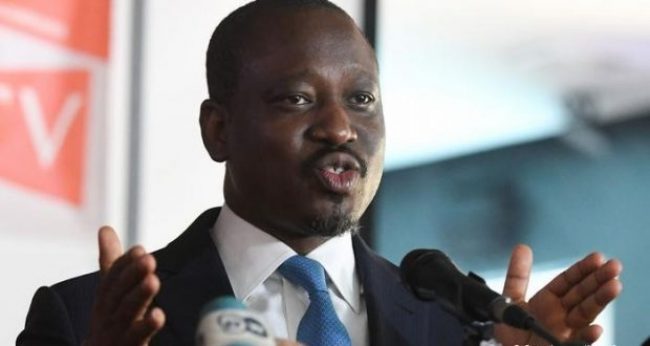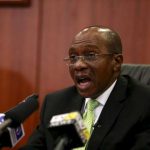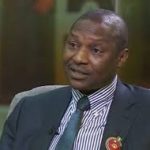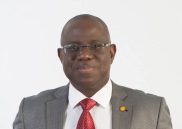

Ivory Coast authorities has issued an arrest warrant for one of the west African country’s presidential candidate, Guillaume Soro, prosecutors said Monday.
The development forced the former rebel leader to divert his planned flight home to neighboring Ghana as security forces raided his party headquarters.
The arrest warrant against Soro, who retains the loyalty of several former rebel commanders who are now in senior military roles, could significantly raise tensions ahead of an October 2020 election that is seen as a test of Ivory Coast’s stability, particularly after deadly unrest that followed the 2010 election.
Public prosecutor Richard Adou said that the arrest warrant had been issued for an “attempt against the state authority,” benefiting from stolen public resources and money laundering.
He said intelligence services had evidence that “the project was to be implemented shortly,” without elaborating.
Read Also: Police Inspector Commits Suicide After Killing Corporal, Injuring DSP
Soro had been scheduled to return to his homeland from Paris for the first time since May, but aborted that plan and headed for nearby Ghana “for security reasons,” according to Alain Lobognon, a spokesman and senior adviser for Soro’s Generations and People in Solidarity (GPS) party.
Lobognon was later arrested along with 15 other Soro supporters.
In the West African country’s economic captial Abidjan, armed men raided Soro’s party headquarters following the news of the arrest warrant as civil unrest broke out on the streets.
Soro used to be an ally of President Alassane Ouattara, but relations have recently soured between the two, reportedly because of Soro’s own presidential ambitions.
Political analysts say the 47-year-old political figure is held in high esteem among young Ivorians, but his nationwide popularity is less well documented.
A Christian from the north of the country, Soro lead rebels who failed to topple former President Laurent Gbabdo in the country’s 2002 civil war. Gbabdo was ousted following a second civil war in 2010-11 triggered by the president’s refusal to concede to Ouattara following elections. Nearly 3,000 people were killed in the conflict.
Soro, who backed Ouattara, then served as prime minister and later speaker of the National Assembly until he stepped down in February this year. – DW.





















